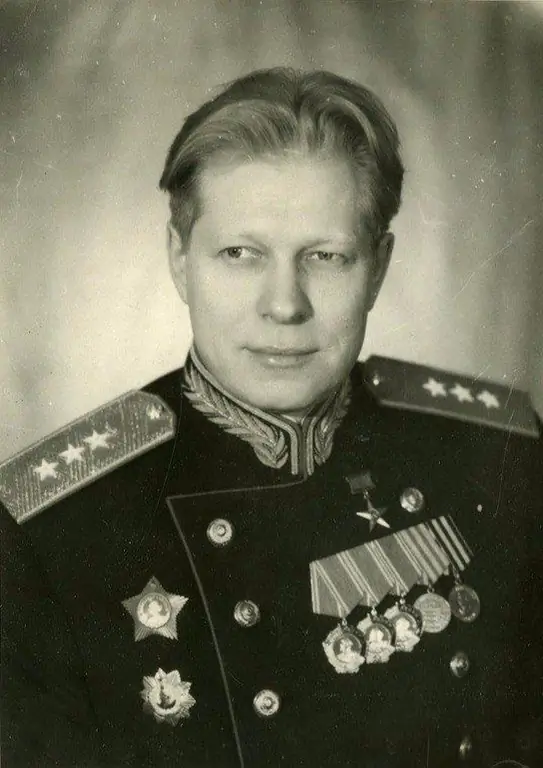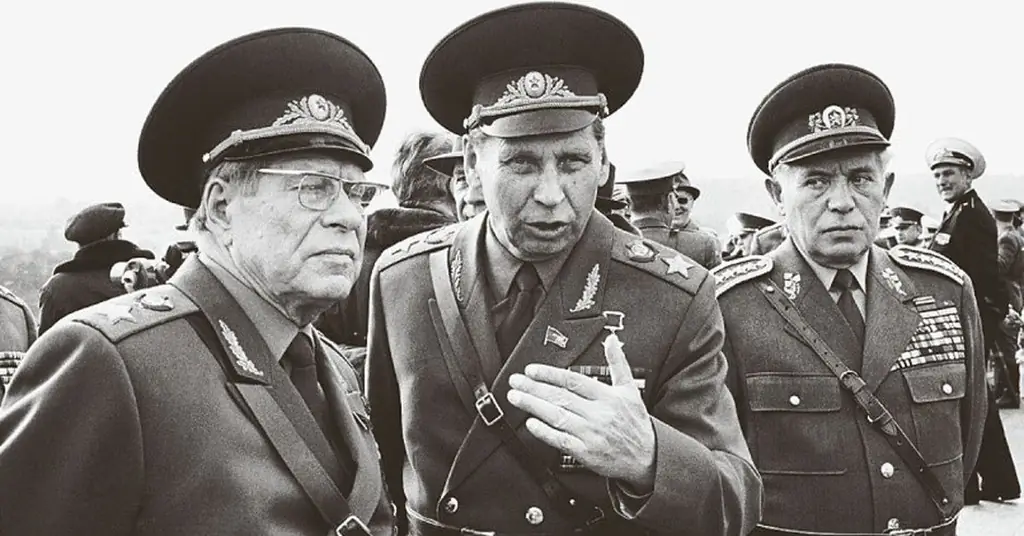- Author Antonio Harrison [email protected].
- Public 2023-12-16 07:44.
- Last modified 2025-01-22 21:44.
Military service is difficult. Not everyone is able to defend their homeland. Both the general and the private know firsthand about this. Dmitry Ustinov served as the country's defense minister. Under his command, the armed forces demonstrated high combat readiness.

A distant start
When it comes to the power of any country, the names of commanders and military leaders are first of all remembered. The fate of Dmitry Fedorovich Ustinov led along dangerous paths and elevated to responsible positions. For nearly forty years he was considered one of the most influential civil servants in the Soviet Union. The CIA collected a dossier on him weighing more than ten kilograms. He happened to be engaged in the construction of defense enterprises and the training of specialists in the corresponding profile. Accept prestigious awards for space exploration.
The future Minister of Defense of the USSR was born on October 30, 1908 in a working class family. Parents lived in the famous city of Samara, which is located on the banks of the Volga River. My father worked at a shipyard. The mother kept the household and raised the children. By the time of birth, an older brother was already growing up in the house. At the age of seven, Dmitry began his studies at a parish school. After graduating from grade 3, he began to earn money as a courier and a deliveryman of mail. After the October Revolution of 1917, he volunteered for the Red Guard.

Creator of military doctrine
After completing his service, Ustinov arrived in the textile capital of Russia, the city of Ivanovo, and entered the mechanical department of the Polytechnic Institute. Having received his diploma, Dmitry Fedorovich began his career within the walls of the Leningrad Research Institute of Naval Artillery. Three years later, he took the position of chief designer, and then director of the Bolshevik military plant. The talented engineer and leader was noticed and appointed People's Commissar of the USSR for armaments. The appointment took place three weeks before the start of the war.
Ustinov did not have to launch attacks and mask artillery pieces from enemy aircraft. He was engaged in the design and creation of modern weapons systems. After the war, Dmitry Fedorovich was instructed by the party and the government to deal with atomic missile projects. The problem was that the atomic bomb created by Soviet specialists had to be “delivered” to the designated address. The means of delivery were rockets. In the spring of 1976, Ustinov was appointed Minister of Defense of the Soviet Union. In this position, he developed an effective security doctrine using modern control systems.
Recognition and privacy
For his great contribution to the development of the country's military-industrial complex, Ustinov was three times awarded the honorary title of Hero of Socialist Labor.
The personal life of the Minister of Defense has developed well. Dmitry Fedorovich met his wife as a student. Husband and wife have lived a long life under the same roof. The husband and wife raised a son and a daughter. Ustinov died suddenly of pneumonia in December 1984.






